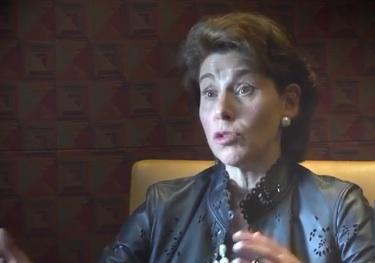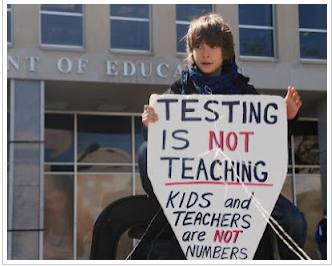NYS Teacher Rating System is TBD
- Category: Schools
- Published: Tuesday, 07 April 2015 13:50
- Joanne Wallenstein
 Though legislators in Albany approved a new teacher evaluation policy that was packaged with the state budget, it's not clear what the new system will be. The new law gives state education officials the power to implement the policy but even Merryl Tisch, Chancellor of the Board of Regents, does not know what rating system will be designed by state education officials. After the budget passed, Tisch said, "We are going to look at the language very carefully and figure out what it all means. The Governor says it's administrative. The Legislature says it's a vast level of authority. Somewhere between the two of those, I'm sure, lies reality."
Though legislators in Albany approved a new teacher evaluation policy that was packaged with the state budget, it's not clear what the new system will be. The new law gives state education officials the power to implement the policy but even Merryl Tisch, Chancellor of the Board of Regents, does not know what rating system will be designed by state education officials. After the budget passed, Tisch said, "We are going to look at the language very carefully and figure out what it all means. The Governor says it's administrative. The Legislature says it's a vast level of authority. Somewhere between the two of those, I'm sure, lies reality."
Under the new law, the State Education Commissioner is charged with creating a system to consider  student performance on standardized tests and observations of teachers in the classroom to rate teachers as "ineffective," "developing", "effective and "highly effective" based on these results. According to the NY Times, school principals can still observe and evaluate teachers but the district must also use outside evaluators to rate teacher performance in the classroom. The state has not offered funding to pay these outside evaluators. New teachers will have to wait four years to get tenure and must be rated effective or highly effective for three years to be tenured. Tenured teachers who are rated ineffective for two years in a row can be fired.
student performance on standardized tests and observations of teachers in the classroom to rate teachers as "ineffective," "developing", "effective and "highly effective" based on these results. According to the NY Times, school principals can still observe and evaluate teachers but the district must also use outside evaluators to rate teacher performance in the classroom. The state has not offered funding to pay these outside evaluators. New teachers will have to wait four years to get tenure and must be rated effective or highly effective for three years to be tenured. Tenured teachers who are rated ineffective for two years in a row can be fired.
NYS Teacher's Union President Karen Magee is calling for a boycott of the state tests, saying "they're not valid indicators of student progress" and an unreliable measure of teacher quality. If enough students opt out of testing, the results would not be valid for rating their teachers.
A March 26th letter from the Scarsdale Board of Education to Governor Cuomo calls for the evaluation system to be reviewed and redesigned. The letter says the system has led to "redundancies and the over- testing of our students." The Board also objects to the Governor's weighting of classroom observations of teachers, which require that 35% of the observation points to be determined by an independent observer who would make one un announced visit to a classroom.







